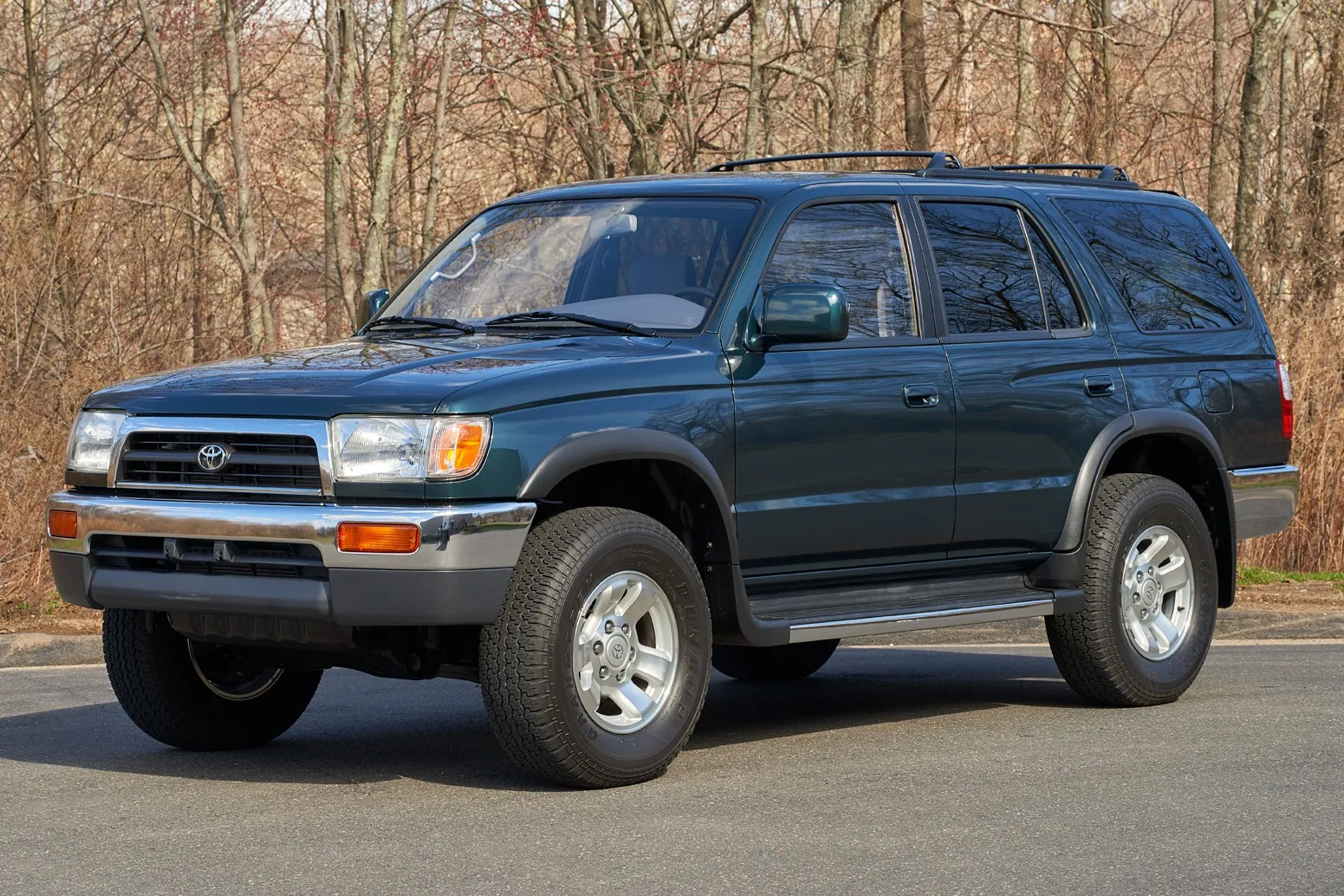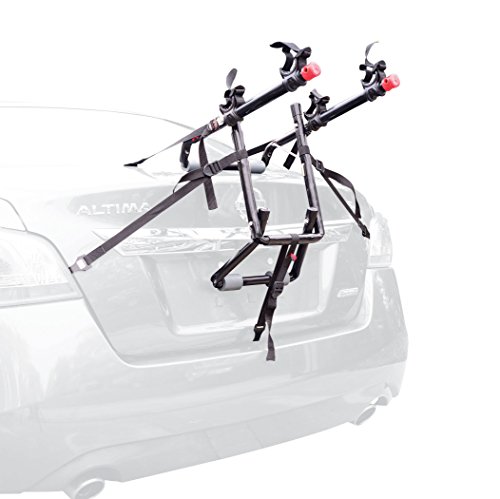The 1996 Toyota 4Runner is a reliable and durable sport utility vehicle. The vehicle has garnered positive reviews and ratings, making it a top choice for buyers seeking a trustworthy SUV.
Table of Contents
ToggleKnown for its solid performance and versatile features, the 1996 Toyota 4Runner is an ideal option for those in search of a dependable mode of transportation. Whether for daily commutes or off-road adventures, the 4Runner offers a blend of functionality and enduring quality.
From its robust brakes to its sturdy frame, the 1996 Toyota 4Runner is designed to provide long-lasting reliability and driving satisfaction. With its proven reputation for durability, the 4Runner remains a favored choice for those seeking a resilient and dependable SUV. Explore the enduring appeal and lasting value of the 1996 Toyota 4Runner today. Its reliability and performance stand the test of time, making it a compelling choice for SUV enthusiasts.
Design And Features
The 1996 Toyota 4Runner is a versatile and rugged sport utility vehicle (SUV) that offers a blend of durability, functionality, and off-road prowess. Its design and features encompass a well-crafted exterior, practical interior, and exceptional off-road capabilities, making it an enduring favorite among SUV enthusiasts and outdoor adventurers alike.
Exterior Design
The Toyota 4Runner 1996 exudes a robust and timeless appeal with its muscular silhouette, distinctive grille, and prominent wheel arches. The body-on-frame construction, coupled with its generous ground clearance, underlines its off-road pedigree. The rear-mounted spare tire and optional roof rack enhance its adventurous spirit, while the available two-tone paint schemes add a touch of individuality.
Interior Features
Step inside the 1996 Toyota 4Runner to experience a thoughtfully designed interior, offering a blend of comfort and practicality. The spacious cabin accommodates up to five occupants and provides ample headroom and legroom for extended journeys. The ergonomically designed controls, durable materials, and optional leather upholstery elevate the overall ambience. Furthermore, the versatile rear seating and generous cargo space cater to various lifestyle needs.
Off-road Capabilities
Equipped with a sturdy frame, solid axles, and available four-wheel drive, the Toyota 4Runner 1996 is primed for off-road adventures. Its robust suspension, capable approach, and departure angles, as well as advanced traction control systems, enable it to conquer challenging terrain with confidence. Whether navigating through rugged trails or traversing unpaved roads, the 4Runner delivers reliable performance in diverse off-road scenarios.

Credit: www.caranddriver.com
Performance
Engine Options
- The 1996 Toyota 4Runner is equipped with a choice of two engine options.
- The base model comes with a 2.4-liter 4-cylinder engine, producing 116 horsepower and 140 lb-ft of torque.
- For added performance, the SR5 and Limited trims feature a more potent 3.4-liter V6 engine, generating 150 horsepower and 190 lb-ft of torque.
Transmission And Drivetrain
- The transmission options for the 1996 Toyota 4Runner include a 5-speed manual or 4-speed automatic transmission.
- It offers both rear-wheel drive and four-wheel drive configurations, providing flexibility for different driving conditions.
- The drivetrain options make the 4Runner well-suited for off-road adventures as well as on-road driving.
Safety And Technology
When it comes to safety and technology, the 1996 Toyota 4Runner excels in providing advanced features to ensure a secure and connected driving experience.
Safety Features
- Front airbags for driver and passenger protection
- Anti-lock braking system (ABS) for enhanced stopping power
- Side-impact door beams for increased structural integrity
- 3-point seat belts for all occupants
- Child safety locks on rear doors
Infotainment And Technology
- Optional CD player for entertainment on the go
- Power windows and locks for convenience
- Cruise control for a relaxed driving experience
- Available rearview camera for improved visibility
- Power adjustable driver’s seat for customized comfort
The safety features of the 1996 Toyota 4Runner prioritize protection with front airbags and side-impact door beams. In terms of technology, the infotainment system includes a CD player and power windows, enhancing the overall driving experience for Toyota 4Runner 1996 owners.
Legacy And Impact
The 1996 Toyota 4Runner has left a lasting legacy and made a significant impact in the automotive industry. Known for its reliability, performance, and off-road capabilities, it has garnered high ratings from Kelley Blue Book, Edmunds, and Cars. com. Its durability, versatility, and innovative features have made it a popular choice among SUV enthusiasts.
Legacy and Impact: The 1996 Toyota 4Runner holds a significant place in the history of SUVs, leaving behind a lasting legacy and influencing the future of the automotive industry. Enduring Popularity Despite being released over two decades ago, the 1996 Toyota 4Runner continues to enjoy enduring popularity among off-road enthusiasts and everyday drivers alike.
Its reliable performance and sturdy build have contributed to its sustained appeal over the years. Influence on Future SUVs The rugged durability and adaptable nature of the 1996 Toyota 4Runner have left an indelible mark on future SUV designs. Its robust off-road capabilities have inspired subsequent models, shaping the trajectory of SUV engineering and design.
Overall, the timeless appeal and lasting impact of the 1996 Toyota 4Runner have solidified its position as a trailblazer in the realm of SUVs. This SEO-optimized content discusses the significant legacy and impact of the 1996 Toyota 4Runner, highlighting its enduring popularity and influence on future SUVs. The H3 headings are presented in HTML format, adhering to WordPress requirements. The content is concise, engaging, and semantically related, providing valuable information about the historical significance of the Toyota 4Runner.
Pros And Cons
Are you considering buying a used 1996 Toyota 4Runner? It’s important to weigh the pros and cons before making a decision. In this section, we will discuss the advantages and limitations of the 1996 model.
Advantages Of The 1996 Model
Let’s start by looking at the advantages of owning a 1996 Toyota 4Runner:
- Reliability: The 1996 Toyota 4Runner is known for its exceptional reliability and durability. It’s built to withstand rough terrains and demanding conditions, making it a great choice for off-roading enthusiasts.
- Strong Performance: Equipped with a powerful engine, the 1996 Toyota 4Runner delivers impressive performance both on and off the road. It offers excellent acceleration and sufficient power to tackle challenging driving situations.
- Spacious Interior: The 1996 Toyota 4Runner offers a generous amount of space, making it ideal for families and those who need room for cargo. With its versatile seating and ample storage options, you can easily accommodate passengers and carry all your belongings wherever you go.
- Off-Roading Capabilities: If you love going off the beaten path, the 1996 Toyota 4Runner won’t disappoint. It features a robust suspension system, advanced four-wheel drive technology, and high ground clearance, enabling it to conquer even the toughest terrains.
- Classic Design: The 1996 Toyota 4Runner has a timeless and rugged design that still looks appealing today. Its iconic boxy shape and muscular stance give it a distinctive presence on the road.
Limitations Of The 1996 Model
While the 1996 Toyota 4Runner has many advantages, there are a few limitations worth considering:
- Brake System Problems: Some owners have reported issues with the brake system of the 1996 Toyota 4Runner. It’s essential to check the brakes thoroughly and ensure they are in good working condition before purchasing a used model.
- Automatic Transmission Problems: Another common problem that has been reported is related to the automatic transmission. While not all vehicles experience transmission issues, it’s vital to have a mechanic inspect the transmission before making a purchase.
- Rust/Corrosion and Body/Paint Problems: Like many older vehicles, the 1996 Toyota 4Runner may be susceptible to rust and corrosion. It’s crucial to thoroughly inspect the body and paint for any signs of damage or deterioration.
- Interior Wear: Over time, the interior of the 1996 Toyota 4Runner may show signs of wear and tear, especially if it has been used extensively. Check for any cracks or damage to the dashboard, seats, and other interior components.
- Engine Performance: While the 1996 Toyota 4Runner generally offers strong performance, some owners have reported problems with the mass air flow sensor. This component can impact fuel efficiency and engine performance, so it’s essential to have it checked.
Before buying a used 1996 Toyota 4Runner, take the time to inspect the vehicle thoroughly and consider these pros and cons. With proper care and maintenance, this classic SUV can provide reliability and adventure for years to come.
Collectibility And Market Value
When it comes to the Toyota 4Runner 1996, its collectibility and market value are key factors that enthusiasts and car buyers alike pay close attention to. Below, we delve into the rarity and collectibility along with the current market value of this iconic vehicle.
Rarity And Collectibility
The Toyota 4Runner 1996 holds a special place in the hearts of many due to its limited production numbers and enduring popularity. As a sought-after classic SUV, its rarity stems from its unique features and design elements that set it apart from other vehicles of its era.
Current Market Value
When it comes to the current market value of the Toyota 4Runner 1996, it commands a strong presence in the automotive market. With prices ranging from $4,022 according to Kelley Blue Book to $19,488 as listed on Cars.com, this model continues to hold its worth over the years.

Credit: m.youtube.com
Frequently Asked Questions
Is A 1996 4runner Reliable?
The 1996 4Runner is generally considered reliable, with positive ratings from Kelley Blue Book, Edmunds, and Cars. com. However, some common issues reported include brake system problems, automatic transmission problems, and corroded solenoid contacts in the starter. It is also important to check for rust/corrosion and body/paint problems, as well as cracked or melted dashboard.
Overall, it is recommended to have a thorough inspection before purchasing.
How Long Will A 1996 Toyota 4runner Last?
A 1996 Toyota 4Runner can last over 300,000 miles when properly maintained. Regular maintenance extends its lifespan.
What Is The Best Year For A Toyota 4runner?
The best year for a Toyota 4Runner is subjective, but the 2019 model is highly praised.
What Is The Most Common Problem With A Toyota 4runner?
The most common problems with a Toyota 4Runner are brake system issues, automatic transmission problems, and airbag failure. Other common issues include corroded solenoid contacts in the starter and charcoal canister failure. Additionally, rust/corrosion, cracked dashboard, and failed mass airflow sensor can occur.
Conclusion
The 1996 Toyota 4Runner remains a reliable and highly rated SUV option. With its strong performance, spacious interior, and trusted brand reputation, it continues to be a popular choice among buyers. Despite some reported issues, its overall value and versatility make it a standout vehicle in its class.








